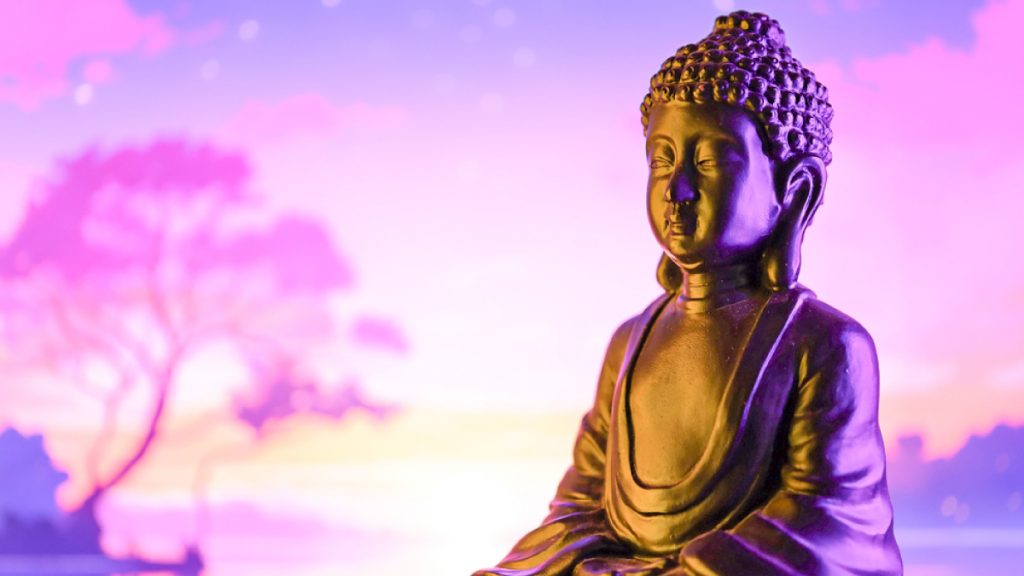Buddha Purnima, also known as Vesak or Buddha Jayanti, is the most significant festival for Buddhists, commemorating the birth, enlightenment, and nirvana of Gautama Buddha. It is celebrated with great reverence across India and other Buddhist-majority countries. Observed on the full moon day in the month of Vaisakha (April-May), Buddha Purnima is a day of deep spiritual significance, marked by prayers, meditation, and acts of compassion.
Buddha Purnima Dates for 2024, 2025, and 2026
To help you prepare for Buddha Purnima in the upcoming years, here are the dates:
| Year | Date | Day |
|---|---|---|
| 2024 | 23/05/2024 | Thursday |
| 2025 | 12/05/2025 | Monday |
| 2026 | 01/05/2026 | Friday |
The Significance of Buddha Purnima
Buddha Purnima is celebrated to honour the three major events in the life of Gautama Buddha: his birth, enlightenment, and nirvana. According to tradition, all three events are said to have occurred on the same day, the full moon day in the month of Vaisakha.
- Birth of Gautama Buddha: Siddhartha Gautama, who later became known as Buddha, was born in Lumbini (modern-day Nepal) as a prince. He renounced his royal life in search of truth and enlightenment.
- Enlightenment: After years of rigorous meditation and ascetic practices, Gautama attained enlightenment under the Bodhi tree in Bodh Gaya, India, and became the Buddha, meaning “The Awakened One.”
- Nirvana (Death and Liberation): Buddha passed away at the age of 80 in Kushinagar, India, attaining Parinirvana, which signifies the final liberation from the cycle of birth and death.
How Buddha Purnima is Celebrated
Buddha Purnima is observed with deep devotion and piety, particularly in Buddhist communities across India. The day is marked by religious rituals, processions, and acts of charity, all aimed at honouring the life and teachings of Lord Buddha. Common practices during Buddha Purnima include:
- Visits to Buddhist Temples: Devotees visit temples to offer prayers, meditate, and listen to sermons on the teachings of Buddha. Many temples are adorned with flowers and candles, creating a peaceful and spiritual atmosphere.
- Bathing the Buddha Statue: One of the most significant rituals is the bathing of Buddha statues with water, milk, and scented flowers. This symbolic act represents the purification of the mind and soul.
- Acts of Compassion and Charity: Buddha Purnima is a time for giving and helping others. Devotees engage in acts of kindness, including feeding the poor, donating to charitable causes, and releasing animals as a symbol of compassion for all living beings.
- Meditation and Reflection: Meditation is an integral part of Buddha Purnima celebrations. Devotees spend time reflecting on the teachings of Buddha, focusing on mindfulness, peace, and spiritual growth.
Buddha Purnima in Different Parts of India
Buddha Purnima is celebrated with great reverence in regions with significant Buddhist populations, such as Bihar, Uttar Pradesh, Himachal Pradesh, and Sikkim. Major celebrations take place in cities like Bodh Gaya, Sarnath, and Kushinagar, which are important pilgrimage sites for Buddhists.
- Bodh Gaya (Bihar): Bodh Gaya, where Buddha attained enlightenment, is one of the most important sites for Buddha Purnima celebrations. Devotees from across the world visit the Mahabodhi Temple to offer prayers and participate in religious rituals.
- Sarnath (Uttar Pradesh): Sarnath, where Buddha delivered his first sermon, is another key site for Buddha Purnima. The day is marked by prayers, sermons, and a large procession that attracts thousands of devotees.
- Kushinagar (Uttar Pradesh): In Kushinagar, where Buddha attained Parinirvana, celebrations include prayers, meditation, and lighting lamps to honour Buddha’s journey to nirvana.
- Leh and Ladakh: In the northern regions of Leh and Ladakh, Buddha Purnima is observed with colourful processions, religious ceremonies, and traditional music and dance.
Buddha Purnima – A Day of Spiritual Enlightenment and Compassion
Buddha Purnima is not just a day to honour the life of Gautama Buddha but also a reminder of the core teachings that he imparted – the path to enlightenment through mindfulness, compassion, and wisdom. The festival encourages devotees to reflect on their own lives, practice compassion towards all beings, and work towards inner peace and enlightenment.
For Buddhists, Buddha Purnima is a sacred day that brings them closer to the ideals of Buddhism – the quest for truth, the practice of non-violence, and the importance of spiritual growth. It is a time for renewal, reflection, and deep spiritual connection with the teachings of the Buddha.
Popular FAQs about Buddha Purnima
- Is Buddha Purnima a public holiday in India? Yes, Buddha Purnima is a gazetted public holiday in India. It is observed in several states, particularly in regions with large Buddhist populations.
- What is the significance of Buddha Purnima in Buddhism? Buddha Purnima marks the birth, enlightenment, and nirvana of Gautama Buddha. It is a day of spiritual reflection, meditation, and acts of compassion.
- How do Buddhists celebrate Buddha Purnima? Buddhists celebrate Buddha Purnima by visiting temples, offering prayers, engaging in meditation, participating in processions, and performing acts of charity.
- Why is compassion important during Buddha Purnima? Compassion is a core teaching of Buddhism, and during Buddha Purnima, devotees engage in acts of kindness and charity to honour Buddha’s message of love and care for all living beings.

